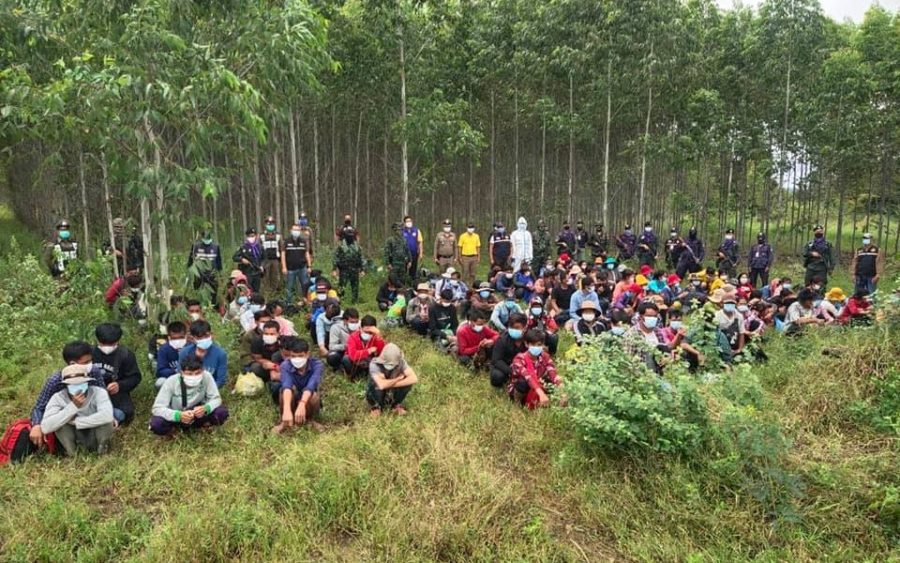At least 373 migrants have been detained in under two weeks during 12 raids on Cambodians crossing into Thailand, a sign of demand for work and confusion over Covid-19 border rules, a labor group said.
Try Sophea, migration officer at Central, said attempts at migrating to Thailand appear to have increased since the Pchum Ben holidays.
Among the 373 arrests in recent weeks, 163 migrants were arrested over the past four days, Sophea said on Monday.
The group has previously said that 741 Cambodians had been arrested for illegally crossing the border to Thailand over the first seven months of the year.
Sophea said workers who had returned from Thailand to reunite with their families but could not find suitable employment locally were among those trying to get into the neighboring country.
They were not only from border provinces in the west but from eastern provinces like Prey Veng or Svay Rieng as well, she said.
“This could be a trend for both those who used to work [in Thailand] and those who have never been and want to find a job,” Sophea said. “It is a concern that they might have received unclear information because the border is restricted and not yet reopened.”
According to a report from the International Organization for Migration released in early September, nearly 17,000 Cambodian workers had returned home in August. More than 230,000 Cambodian workers had returned from Thailand in all since March 2020, the report states.
Workers first returned in 2020 at the onset of the pandemic, but more recently they crossed back into Cambodia after Thailand saw a sharp increase in Covid-19 cases in the last few months.
National Police spokesperson Chhay Kim Khoeun said that from the Cambodian side, the first two weeks of October had seen 165 people caught trying to cross the border. They were briefly detained before being allowed to return home, he said.
A further 21 people-smugglers were arrested and sent to court, while 67 people who were with them were educated and sent home, he said.
Koy Kuong, a spokesperson for the Foreign Affairs Ministry, said those arrested in Thailand were also quickly repatriated.
“They were not detained in Thailand for long. Legal workers who wish to return home and seek the intervention of the Cambodian Consulate General in Sa Kaev, Thailand, have always been returned safely,” Kuong said.
Thet Bunphat, 38, said there many people around him who wanted to go to Thailand if the border would reopen.
He and seven siblings had just one plot of land in Banteay Meanchey to grow rice, and many of them had migrated back and forth to Thailand for work, he said.
Bunphat and his wife themselves only returned to the country in August after three years there, and got out of quarantine just last week. They came home after getting Covid-19, but were already planning a return, he said.
It would likely be early next year after his wife gives birth to their second child, he said.
People wanted jobs, but generally they would not risk an illegal crossing, he added.
“I wouldn’t dare to return either because the Cambodian and Thai borders are closed. We don’t dare to return. We wait until the border gates are opened normally and are instructed by laws about how to go back,” Bunphat said.
Another migrant, Kea Vin, 24, said he had been going back and forth to Thailand for years, but now he was home depending on his family in Siem Reap.
He helped them farm, but he had no job prospects in Cambodia, Vin said.
He said he was waiting to see how the situation would change. “Thailand, it’s good for making money and working there. It’s a fact we’ve seen.”













